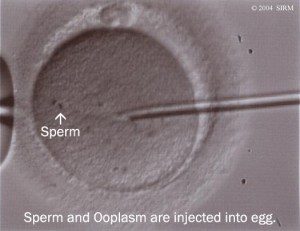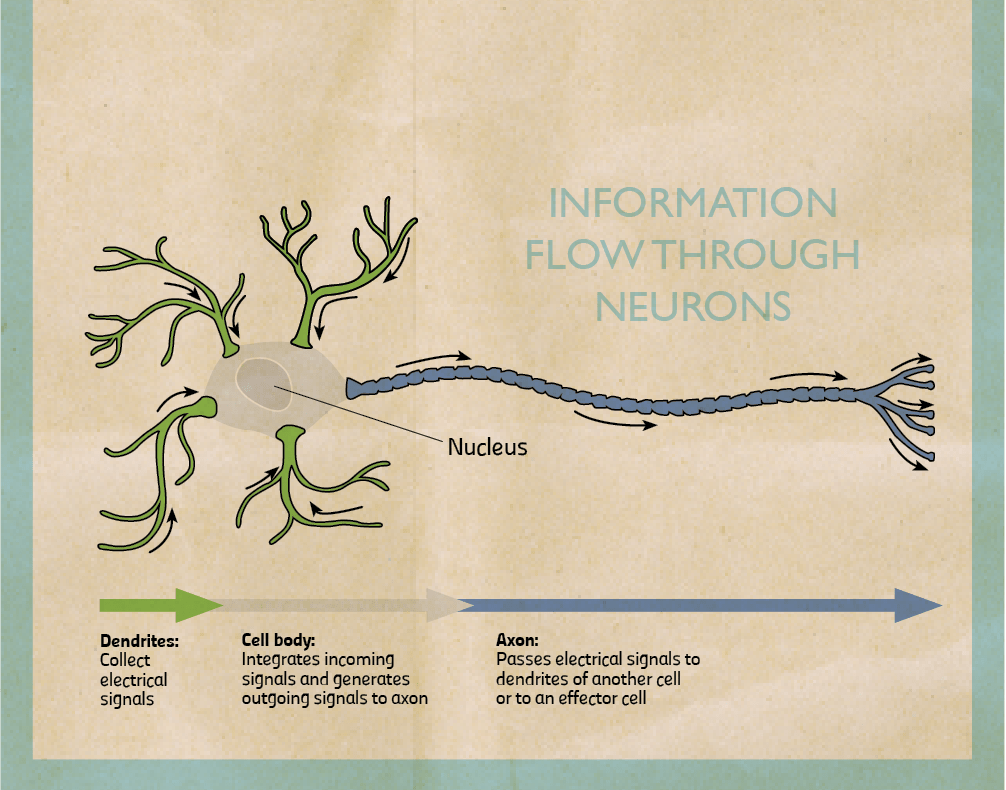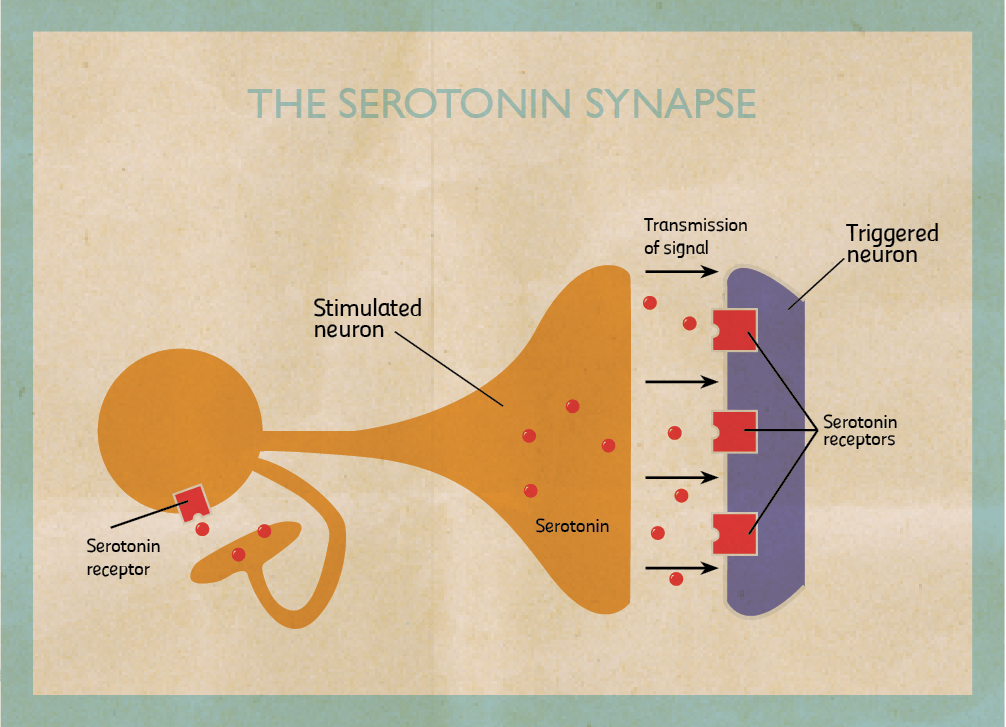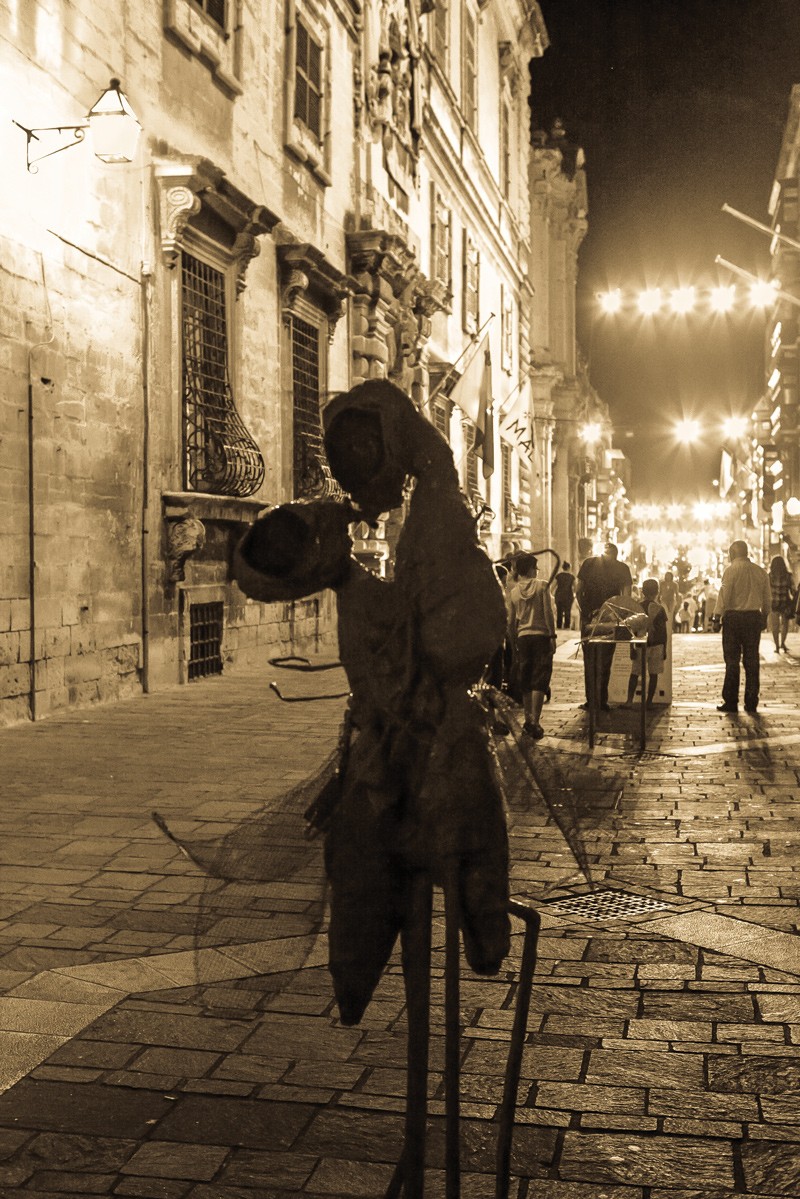We experience gravity everyday, but how it works is one of the biggest questions in physics. Einstein’s theory of relativity means that we don’t understand over 90% of the Universe. A team at the University of Malta is trying to put that in order.
I do not know what I may appear to the world, but to myself I seem to have been only like a boy playing on the seashore’, said the famous Isaac Newton. Humanity has progressed in its search for answers by always searching for the next smooth pebble, the next pretty shell. In Malta, a small group of students is trying to understand gravity through the observation of stars and galaxies that light up the night sky.
Gravity has kept our feet on the ground since we started walking upright. Early theories by the Greek philosopher Aristotle (384–322 bc) were interesting but far from the truth. His Universe was built in concentric spheres with Earth at the centre, followed by water, air, fire, and enclosed by the heavens — a rock fell to the Earth because it wanted to go to its original sphere. Clearly, he was wrong.
Aristotle’s concepts were challenged during the Renaissance when the Italian Galileo Galilei (1564–1642 ad) infamously dropped different weights from the tower of Pisa. Contrary to the Greek theory which stated that the heavier an object is, the faster it falls, Galileo saw the objects all fall at the same rate. Theories need to match observations, otherwise they fail — an invaluable technique used time and again by any decent scientist including the Malta group of astrophysicists led by Dr Kris Zarb Adami.
“Space is a dynamic entity ‘moving forward in time, the two being bound by light itself”
The first person to suggest a good theory for why rocks fall was Isaac Newton (1643–1727 ad). As the story goes, watching an apple fall triggered Sir Isaac Newton to come up with his theory of bodies. He said that anything with mass had a force that attracted everything towards it — the bigger the mass, the bigger the force. Since the apple is smaller than the Earth, it falls towards it, and since the Earth is smaller than the Sun, the Earth goes around the Sun. Newton’s law was successfully used to predict the motion of planets and helped discover Neptune.

By the 20th century, holes in Newton’s ideas started to appear when scientists discovered that Mercury’s orbit differed slightly from Newtonian predictions. In 1915, along came Einstein (1879–1955 ad) who again revolutionised our understanding of gravity through the introduction of his theory of general relativity. Newton had considered time and our three-dimensional space to be independent. Einstein replaced this with the notion of spacetime, which combines space and time into one continuous surface. Space is a dynamic entity ‘moving forward’ in time, the two being bound by light itself.
Large objects like the Sun bend the fabric of spacetime (it is convenient to think of spacetime as a sheet of fabric with balls lying on top of it — bigger balls curve the fabric more). Smaller objects (such as the Earth) try to follow the shortest route around the Sun. The shortest way is curved and it is easy to see how this comes about.

Consider the shortest route from the North Pole to the South Pole, you would naturally move down a curved longitude, which forms part of a circle round the Earth. This concept also explains why the Earth traces an orbit round the Sun. The orbit is the ‘best straight line’ that Earth can trace
in the curved spacetime surrounding the Sun. As John Archibald Wheeler neatly summarises it: ‘Spacetime tells matter how to move, matter tells spacetime how to curve’.
Einstein’s biggest blunder
Einstein’s theory of general relativity describes how gravity works. Einstein wanted his equations to represent a static Universe that did not change with time. To this end, he introduced a factor called the cosmological constant that would bring the Universe to a halt. However, this idea was short-lived. Another great (though highly egotistical) physicist called Edwin Hubble discovered that the Universe was expanding; this was confirmed in the late nineties and led to a Nobel Prize in 2011. It not only means that all matter will eventually disperse throughout the Universe and future generations will see only a blank night sky, but also poses a problem in that the reason for this expansion is completely unknown and unpredicted from Einstein’s theory. And it is not a small factor at all, since this mysterious energy makes up 68% of the energy in the Universe. Nicknamed ‘dark energy’ because it is unseen, this is the biggest problem in modern astrophysics and cosmology.
“If a star’s light is being bent by a galaxy, from Earth it will appear that the star’s light has changed, when in reality it would not have changed at all”
Scientists either have to accept that dark energy is true, or that Einstein’s model has met its limits and physics needs a new way to model gravity, at least on the largest of scales. The Malta astrophysics group is trying to verify and find new models of gravity — these so-called alternative theories of gravity. The idea is to compare observations to the different gravitational theories, including Einstein’s, and see which works best.
Our focus is split two-ways: one is the effect that celestial bodies have on each other’s orbital motion and the other is the bending of light around heavenly bodies. For example, our sun bends spacetime, causing the planets to go round it in ellipses. The sun also wobbles around a very small orbit. Observations show that the orbiting objects go round a bit longer than we would expect. The extra amount is miniscule, so measurements are taken after many orbits as this magnifies the effect. We use this as a possible test to disqualify alternative theories and have already shown how an important alternative theory of gravity cannot be true.
This is how fundamental science works. If a model does not match observations it needs to be modified to arrive at something that does give all the predictions we require. The end result must be a complete theory by itself but the different components could find their birth in a wide variety of unconnected sources.

The Malta astrophysics group considered a theory called conformal Weyl gravity that is similar to general relativity in every respect except one. This theory behaves exactly like Einstein’s but imposes a further constraint — mainly that the gravitational field remains the same no matter how much it is stretched or squeezed. Simply put, as long as the mass remains the same, gravity does not change. This assumption solves many problems. It makes dark matter and dark energy unnecessary. Dark matter is needed to explain the motion of stars in galaxies. Like dark energy, it is called dark because it cannot be seen or analysed in any way. Making them irrelevant would fill a gaping hole of knowledge for astrophysics.
When the group tested the Weyl theory, it gave the same result as general relativity and a small additional term. That was not a problem, since effects of this term were so small that they could not be observed with today’s largest telescopes. The problem, as shown by the Maltese astrophysics group, is that the term grows larger with distance and contradicts observations at the largest galactic scales. This was an important nail in the coffin for the Weyl theory of gravity and Einstein’s theory still remains the best model.
Our next step is to test other alternative theories of gravity by analysing how objects orbit each other. In the same way we disproved conformal Weyl gravity, we hope that these tests will help astrophysicists to eventually come closer to a model that correctly explains the cosmos.
Bending light
Gravitational Lensing is perhaps the most sensitive test of gravity on cosmological scales. To understand how it works, consider a lit candle and a wine glass. Imagine holding the wine glass and peering at the candle through the glass’ base. The flame will be distorted and changes shape. Now picture you are with a friend who stands a couple feet by your side. The flame will appear normal to them since they are seeing it from a different perspective and the light does not pass through the glass. Two people with a different point of view see different flame shapes. The wine glass’ base distorts the flame because it acts like a lens changing the direction light travels. Obviously in the Universe there are no wine glasses between the stars and the Earth but objects with huge masses like our sun or galaxies can act like a lens and bend the direction of light by the sheer force of gravity.
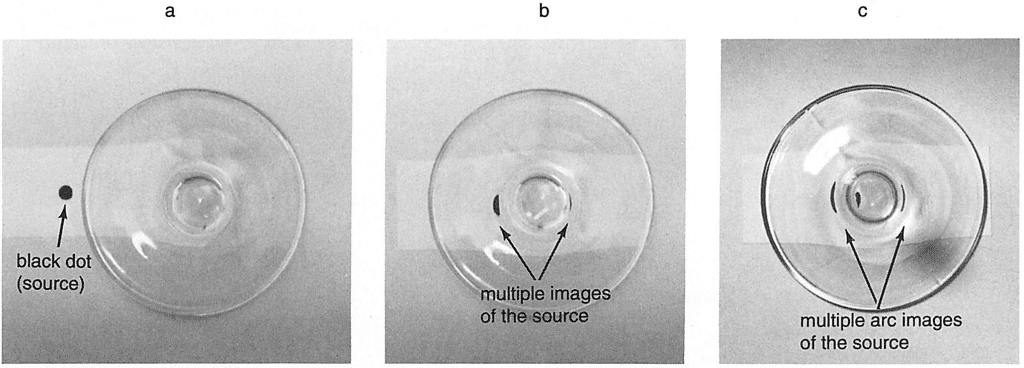
When there is no mass to affect it, light travels in straight lines, but insert a massive object and hey presto, the light deflects around it as if it were going through a curved glass lens. The area in which an object feels the gravitational pull of the Earth is called the Earth’s gravitational field. Each object in the Universe has a gravitational field and can therefore pull other objects towards it — like the Earth’s effect on the Moon, which keeps it in orbit.
Anything that enters an object’s gravitational field will feel a gravitational pull towards the center of the object. Imagine a ray of light traveling from a point to another with nothing in between. In this case the ray will travel in a straight line. Nevertheless, if the ray meets with an object along its way to the Earth, the object will pull the ray towards it as a consequence of the object’s gravity. Even though the ray of light will try to keep moving in a straight line, the gravity of the object is so strong that it bends the ray’s path. If a star’s light is being bent by a galaxy, from Earth it will appear that its light has changed, when in reality it would not have changed at all. This effect is called Gravitational Lensing and is currently one of the best tests for alternative theories of gravity, since one can measure the deflection of light and check whether it agrees with the theoretical predictions.

Extreme situations like the bending of light by galaxies cause problems for Einstein’s theory. When summing up the masses of the galaxies, we obtain the mass of the objects that are visible in the cluster. Comparing the predicted light deflection with the observed one, astronomers consistently find that the light is bent ‘more’ than is expected. The way to solve this issue is obvious. Introduce a completely invisible mass that increases the amount of bending until the predictions fit the observation: enter dark matter!
The idea of dark matter emerged a while ago. In 1933, Swiss astronomer Fritz Zwicky suggested it when studying how a galaxy rotation changes as one goes further away from the galaxy’s center. Zwicky observed that the speed or velocities predicted by Einstein’s theory should tear the galaxy apart. In reality, something must be keeping it whole. The idea of an invisible substance called dark matter was born.
Dark matter keeps the Universe together by opposing dark energy that pushes the Universe apart. Dark energy is related to the cosmological constant, previously discarded as Einstein’s biggest blunder, now reintroduced in astrophysicists’ equations to explain the accelerated expansion of the Universe.
The problem with dark matter is that it has never been seen. There is only indirect proof of its possible existence. Deandra Cutajar’s work focused on testing theories where no dark matter is needed. If true, this would put a small spanner into Einstein’s equations.
She tested two theories. They passed the first tests, but they have to pass many more to unseat Einstein’s general Relativity. Going back to the Swiss astronomer Zwicky, the two theories could explain why galaxies are not ripped apart by the speed with which they spin. Dark matter could be dead.
In another test, both theories failed to explain the extra gravitational effect observed in lensing. One theory failed miserably, while the other yielded less accurate results than Einstein’s general relativity. Dark matter is reborn; on the other hand, it cannot remain dark. It needs to be found and studied.
No theory of gravity has yet been found to beat Einstein’s equations. The explanation of how gravity works according to Einstein is better than Newton’s. A curved spacetime clearly explains why light is bent. Einstein’s theory of gravity still holds water and apart from the cosmological constant (his biggest blunder), he was right on most things. When his stunning prediction of how light can bend was observed, he replied, ‘I knew the theory was correct. Did you doubt it?’
What the future holds for any theory of gravity is uncertain, but what is definitely true is that the astrophysics group in Malta cannot accept the fact that we don’t understand 95% of the universe.
[ct_divider]
Gravitational lensing
More gravitational lensing
Gravitational lensing of distant star-forming galaxies (schematic) from ESO Observatory on Vimeo.







